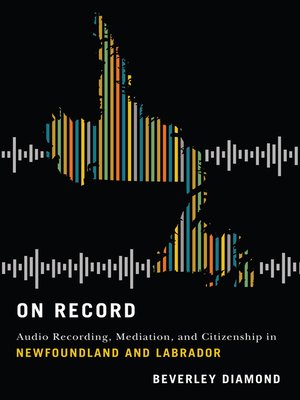On Record
ebook ∣ Audio Recording, Mediation, and Citizenship in Newfoundland and Labrador
By Beverley Diamond

Sign up to save your library
With an OverDrive account, you can save your favorite libraries for at-a-glance information about availability. Find out more about OverDrive accounts.
Find this title in Libby, the library reading app by OverDrive.



Search for a digital library with this title
Title found at these libraries:
| Library Name | Distance |
|---|---|
| Loading... |
Musical media and the audio recording industry have an important and complex history in Newfoundland and Labrador: professional musicians, community songwriters, local institutions, and even politicians have gone on record. The result is a widespread body of work that undercuts the idea of recorded music as a cultural commodity and deepens the province's tradition of cultural activism.
Drawing on contemporary testimony and over fifty years of interviews, On Record explores how recording projects have served as sonic signatures, forms of protest, homage, or parody of the foibles of those in power. Beverley Diamond examines how audio recording in Newfoundland and Labrador has been shaped not merely by creative individuals, but by such events as resettlement, residential schools, the cod moratorium, technological change, and disasters that have befallen those who live and work on the North Atlantic. A chapter by ethnomusicologist and musician Mathias Kom examines the widespread response to a unique annual "challenge" to make an audio recording. Spanning both commercial and community-oriented initiatives, this book reflects the vibrant, socially engaged, and resilient nature of communities that value simultaneously and equally the highest professional standards and the creative potential of every citizen.
Encompassing music from both settler and Indigenous communities, On Record redefines the culture of a province that has most often been associated with traditional music, demonstrating that recording goes beyond the creation of a commodity: it responds to the present and to constructs of public memory.







